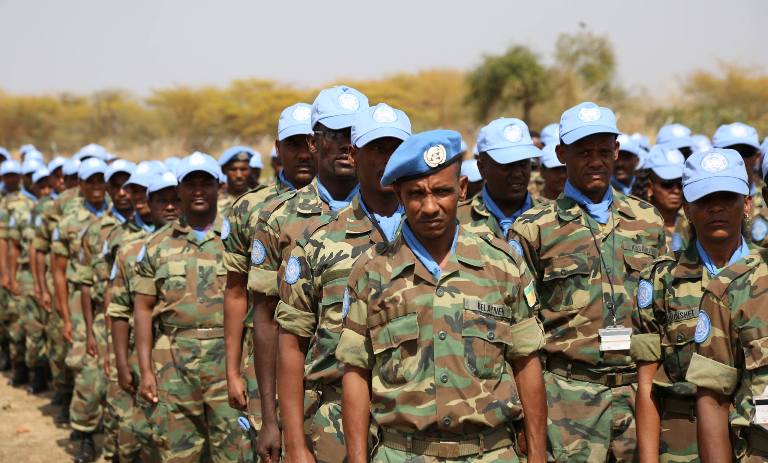Sudan rejects UN proposal to reconfigure Abyei peacekeeping force

September 20, 2018 (NEW YORK) – Sudan has opposed a proposal by the United Nations Secretary-General to reconfigure the mandate of UN peacekeepers deployed on the disputed area of Abyei as it might affect the establishment of a local administration that Juba rejects.
The Security Council Thursday was briefed by Jean-Pierre Lacroix, the Under-Secretary-General for Peacekeeping Operations, and the outgoing UN Special Envoy Nicholas Haysom on the need to adjust the mission mandate to the changing needs in the disputed area.
Lacroix proposed to deploy additional police units, to enhance the UN’s focus on maintaining law and order there, and furthering peace between local communities.
According to the proposal, the military personnel of the Mission would concentrate its deployments along the borders of the Area, to safeguard against armed incursions.
Further “the recommendations call for the deployment of three formed police units and additional specialised individual police officers, to enhance the Mission’s focus on maintaining law and order and continue furthering peace between the local communities,” Lacroix further said pointing to the increase in criminal activity in the area.
However, the Sudanese ambassador to the United Nations Omer Dahab Fadl rejected the proposal saying the that it would be wise to “refrain from all that would disturb the positive atmosphere” between the Misseriya and Dinka communities and”to and avoid any decisions that are not sufficiently studied” in Abyei.
The Sudanese diplomat said that until an agreement on the future of the disputed area is reached, under the international law Abyei remains “part of the Sudanese national territory and the Government of Sudan exercises full sovereignty over it”.
He further called to the work for the implementation of the agreement of 20 June 2011 which provides to form temporary local institutions to administrate the disputed area including a local executive and legislative bodies and a police force.
The Ngok Dinka of Abyei refuse the formation of Abyei Area Administration and the Legislative Council. The leaders of the Dinka chiefdoms in the area call to hold a referendum without the participation of the Sudanese pastoralist Misseriya.
The Sudanese government and the SPLM in a peace deal signed in 2005 that led to the independence of South Sudan in 2011 agreed that the fate of the Abyei area would be determined through a popular vote.
But later on, the parties disagreed on who is eligible to participate in the referendum.
In his speech before the Security Council, Hansom expressed hope that the improvement of bilateral relations between Sudan and South Sudan positively impacts the efforts to find a permanent solution for Abyei issue.
“The new mood has indeed enabled its imminent personalities concerned with Abbey including former Foreign Minister Francis Deng to generate an informal series of discussions in Khartoum,” he disclosed.
“Their aim is to identify a roadmap that would rejuvenate cooperation between the Ngok Dinka and Misseriya and open a window to discuss the final status of Abyei,” he further said.
The foreign ministers of the two countries are expected to meet in the upcoming days to discuss the situation in Abyei and a possible way out.
(ST)
